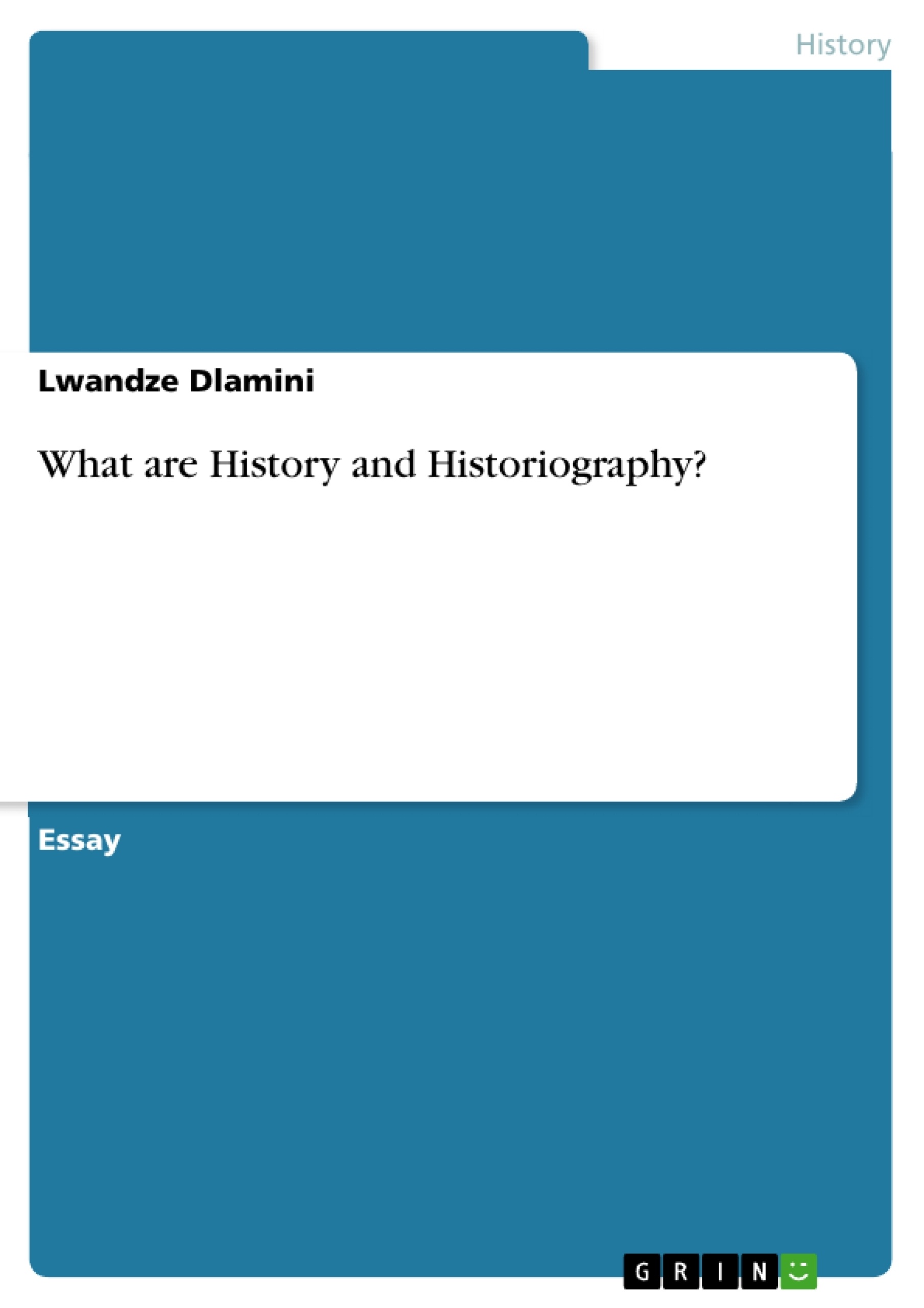This essay delves into the multifaceted definitions of history offered by prominent scholars like E.H. Carr, Collingwood, and Iferneje. It explores history as a dynamic process involving the interaction between historians and historical facts, emphasizing the study of cause and effect in past events.
The subject matter of history is presented as a comprehensive examination of human activities and their impact on societal development, incorporating both objective and subjective elements. The essay highlights the significance of nature in shaping historical events and the historian's role in performing scientific, imaginative, and literary functions.
Transitioning to historiography, the essay defines it as the craft of writing history, encompassing the methodology of historians, the development of history as a discipline, and the body of historical works on specific subjects. It emphasizes the examination of complexities and challenges in historical writing.
The latter part of the essay focuses on the emergence of radical historiography in Southern Africa, driven by themes like tracing the causes of violence, colonial and anti-colonial explanations, and repositioning marginalized voices. The rise of radical historiography is contextualized within the socio-political landscape of Southern Africa, marked by violence and economic crises.
In summary, this essay unravels the intricate dimensions of history and historiography, offering insights into diverse definitions and approaches while specifically exploring Southern Africa's radical historiography within the context of societal upheavals.
Table of Contents
- Defining History and Historiography
- History as a Process of Interaction
- The Definition of History by Collingwood
- History as a Body of Knowledge: Iferneje's Perspective
- History as the Record of Human Experience
- Data Collection and Presentation in History
- The Scope and Nature of History
- Sources of Evidence in History
- The Ambiguity of the Term 'History'
- The Ethical Concept of History
- Historiography: The Study of History Writing
- The Craft of Writing History
- Historiography's Focus on Historical Issues and Problems
- Radical Historiography in Southern Africa
- Tracing the Causes of Violence
- Colonial and Anti-Colonial Explanations
Objectives and Key Themes
This essay explores the definitions of history and historiography, delving into the various perspectives on what constitutes history and the methods employed in writing about it. It then focuses specifically on the emergence of radical historiography in Southern Africa, analyzing the themes and debates surrounding this distinct approach to historical study.
- Defining History and Historiography
- Radical Historiography in Southern Africa
- Colonial and Anti-Colonial Perspectives on Violence
- The Role of Oral Tradition in Historical Research
- The Subjectivity and Objectivity of Historical Writing
Chapter Summaries
The essay begins by defining history, examining various perspectives from historians like Carr, Collingwood, Iferneje, and Barraclough. It explores the nature of historical evidence, differentiating between written and unwritten sources and discussing the importance of oral tradition in African societies. It also analyzes the subjective and objective aspects of historical writing, recognizing the role of the historian's perspective in shaping historical narratives.
The essay then shifts its focus to historiography, defining it as the study of how history is written and exploring its core concerns, such as examining the issues and challenges involved in historical research and writing. It discusses the development of history as a discipline, highlighting different approaches and methodologies.
The final section delves into the emergence of radical historiography in Southern Africa, specifically examining the themes and debates surrounding the rise of violence in the region. It analyzes the colonial and anti-colonial explanations for the violence, highlighting the importance of understanding the historical context and complexities of the situation.
Keywords
The key terms and concepts explored in this essay include: history, historiography, radical historiography, Southern Africa, colonial and anti-colonial perspectives, violence, oral tradition, historical evidence, subjectivity and objectivity in historical writing, historical research methods, and the nature of historical discipline.
- Quote paper
- Lwandze Dlamini (Author), 2020, What are History and Historiography?, Munich, GRIN Verlag, https://www.grin.com/document/1436096



